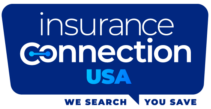Do I Need Life Insurance?
Life insurance policies are used to provide cash for final expenses, support for dependents, and pay debts and estate taxes.
If you decide that purchasing life insurance is worth it, you should know why you are buying it and be able to select the best type of policy for your needs (term or whole life). If you do not have minor children or dependents that will require support, you may not need life insurance.
Consider the following questions to determine whether it makes sense for you to buy insurance to provide financial help for family members over the long term.
Long-Term Life Insurance Needs
- • How many people depend on your earning capacity? If none, you probably do not need life insurance.
- • How much money would your dependents need for living expenses? How much earned income do you provide on a regular basis and will that amount be the same for your dependents’ needs? Will there be other sources of income available?
- • How long would it take for your dependents to become self-sufficient? How long before your children can support themselves? How long would it take for your spouse to be able to support themselves? How much money will be needed to provide training or education to acquire the necessary background for your dependents to become seIf-sufficient?
Short-Term Life Insurance Needs
• What assets will be available to take care of your dependents’ immediate financial needs? How much money are you likely to have in your bank accounts (joint accounts will provide immediate access), and what stocks or other assets will be available?
• After you die, how long will it be before your property is turned over to your inheritors? If most of your property will avoid probate, there’s usually little need for insurance for short-term expenses, unless you have no bank accounts, securities, or other cash assets. However, if the bulk of your property is transferred by will and therefore will be tied up in probate for months, your family and other inheritors may need the ready cash insurance can provide.
• Will your estate owe substantial debts and taxes after your death? If your estate has almost all “non-liquid” assets (real estate, collectibles, a share in a small business, jewelry, etc.), there may be a significant financial loss if these assets must be sold quickly to raise cash to pay bills, as opposed to what they could be sold for later if there had been enough liquid money from insurance or other sources to meet all pressing bills. However, if your estate has significant funds in bank accounts or marketable securities, you won’t need insurance for this purpose.
• If you don’t have dependents, will there be enough cash to pay your final expenses and debts?
Business Life Insurance Needs
Sole owner of a business.
o How much cash will it need when you die?
o Do you want and expect that some of your inheritors will continue the business? If so, do you think there will be enough cash flow for them to successfully maintain the business? You may need insurance proceeds to cover any cash flow shortage of the business.
o If your inheritors do not want to continue to operate the business, how much is your death likely to affect the value of the business? Will there be enough cash to keep the business alive until it is sold?
o Will there be liquid funds to pay estate taxes?
Partial ownership of a business
o How much income will be lost because of your death?
o Will there be enough cash flow to continue to operate the business without your participation?
o Will the other owners have enough cash to purchase your portion of the business? If not, a life insurance policy can provide the necessary cash to purchase your interest.
Answering these questions will help determine if life insurance is necessary and give you hints as to what policy is going to be most beneficial to your family. Depending on how you answered or if you have more questions, a discussion with a life insurance professional might be very valuable.
